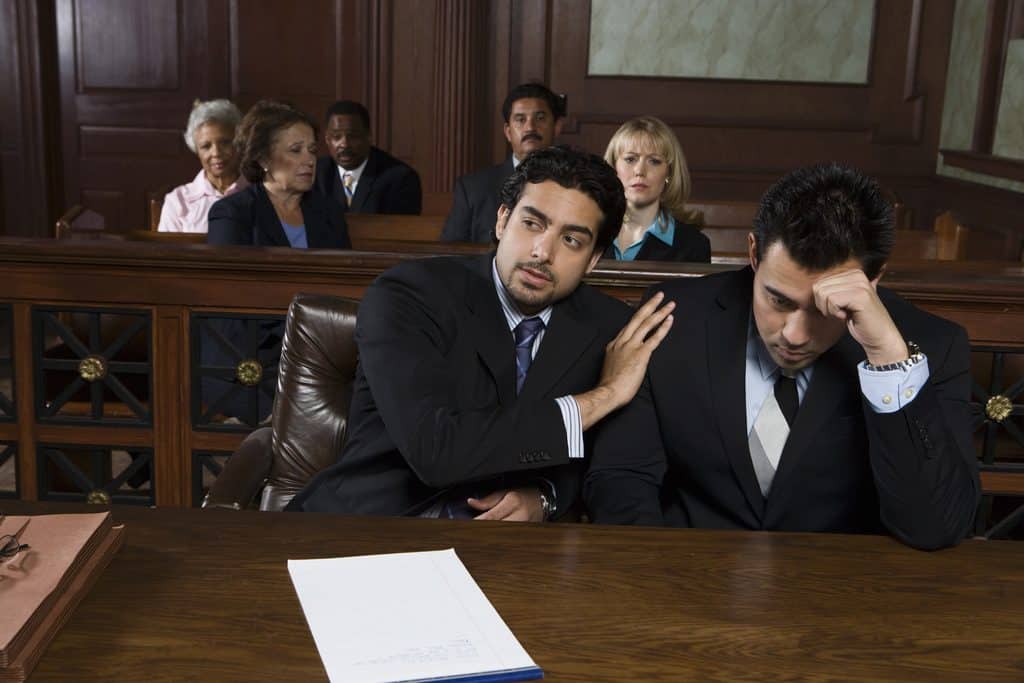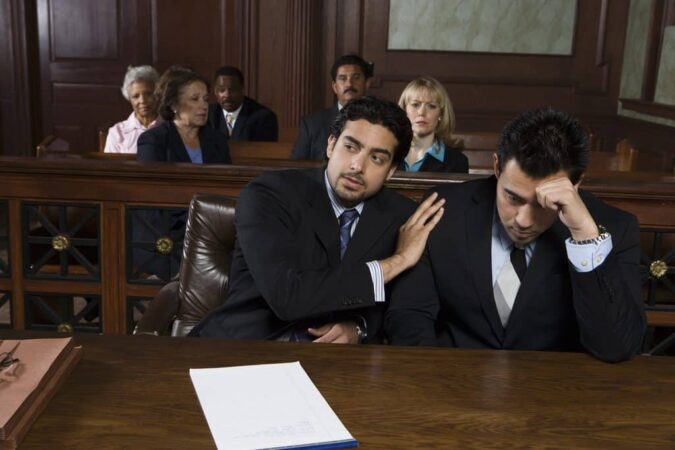
Lawyer-Defendant Relationship
Within the legal system, lawyers play a crucial role as advocates for their clients, while defendants are individuals facing criminal charges or civil lawsuits.
Lawyers are ethically bound to provide competent and zealous representation to their defendants, upholding their rights and interests throughout the legal process. This includes thoroughly investigating the case, advising the defendant on legal options, and presenting a robust defense in court.
Ethical Obligations of Lawyers
Lawyers are obligated to maintain confidentiality, avoid conflicts of interest, and act with integrity and professionalism. They must refrain from engaging in any conduct that could compromise their client’s case or undermine the integrity of the legal system.
Dynamics and Potential Conflicts
The lawyer-defendant relationship is often complex and can be influenced by factors such as the severity of the charges, the defendant’s personality, and the lawyer’s own beliefs and biases. Potential conflicts may arise when the defendant’s interests diverge from the lawyer’s professional judgment or ethical obligations.
Communication and Confidentiality

Effective communication between lawyers and defendants is crucial for a successful attorney-client relationship. Open and honest communication enables lawyers to understand their clients’ needs, goals, and concerns, and to provide tailored legal advice and representation.
The attorney-client privilege is a fundamental legal principle that protects confidential communications between lawyers and their clients. This privilege ensures that clients can freely share sensitive information with their lawyers without fear of disclosure, fostering trust and facilitating effective legal representation.
Limitations and Exceptions to Attorney-Client Confidentiality
While the attorney-client privilege is generally strong, there are certain limitations and exceptions:
- Crime-Fraud Exception: Communications related to ongoing or future crimes or frauds are not protected by the privilege.
- Imminent Harm Exception: If a client communicates an intent to cause imminent harm to themselves or others, the lawyer may be obligated to disclose the information to prevent harm.
- Waiver: Clients can voluntarily waive the attorney-client privilege, either expressly or impliedly through their actions.
Case Strategy and Decision-Making

Lawyers play a pivotal role in developing and implementing effective case strategies for their defendants. They work closely with clients to understand their objectives, assess the legal landscape, and formulate a comprehensive plan that aligns with their interests.
Lawyers consider a multitude of factors when making decisions on behalf of their clients. Legal precedents, evidentiary considerations, and potential outcomes are meticulously evaluated. Lawyers leverage their expertise in the law to identify weaknesses in the prosecution’s case and exploit opportunities to strengthen their client’s position.
Plea Negotiations
Plea negotiations are a crucial aspect of case strategy. Lawyers engage in discussions with prosecutors to explore potential plea options. They assess the strength of the evidence, the likelihood of conviction, and the potential consequences of a guilty plea. By carefully considering all factors, lawyers provide informed advice to their clients, empowering them to make informed decisions about their future.
Post-Trial Considerations

Following a trial, lawyers play a crucial role in advising their clients on the potential outcomes and guiding them through the post-trial process. This includes explaining the verdict, discussing sentencing options, and exploring avenues for appeal or post-conviction relief.
Sentencing
In cases where a defendant is found guilty, the judge will determine the appropriate sentence based on various factors, including the severity of the crime, the defendant’s criminal history, and mitigating circumstances. Lawyers advocate for their clients by presenting evidence and arguments that support a lenient sentence or alternative sentencing options such as probation or community service.
Appeals and Post-Conviction Proceedings
If a defendant is dissatisfied with the trial outcome, they may choose to file an appeal. Lawyers represent defendants in the appeals process, arguing that the trial court made errors or that the verdict was not supported by the evidence. Additionally, lawyers assist defendants in pursuing post-conviction proceedings, which may include seeking a new trial or challenging the validity of the conviction.
